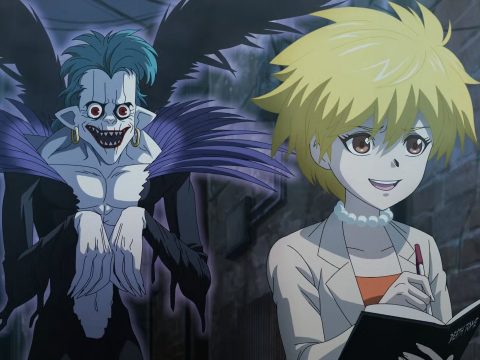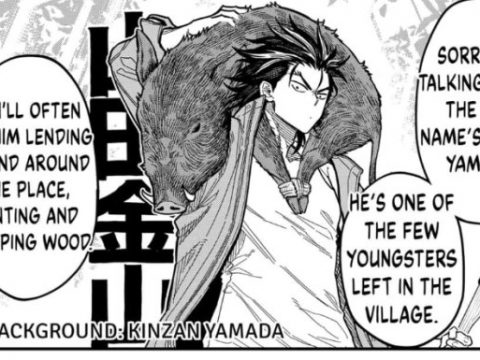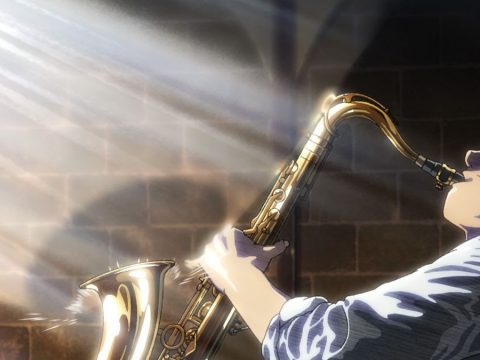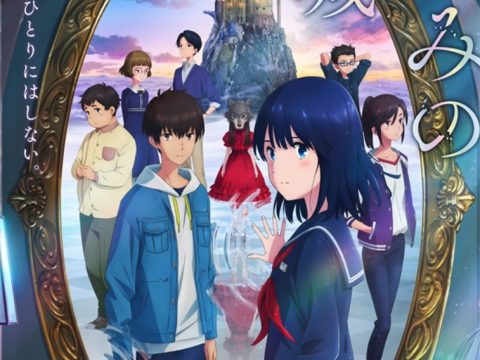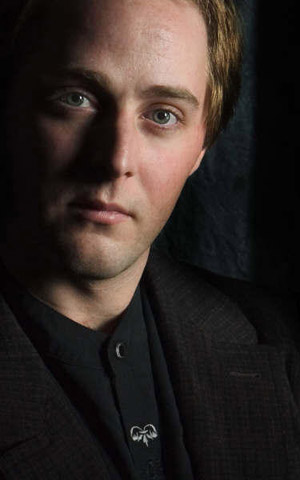 Taliesin Jaffe broke into the anime industry via, perhaps, the most romantic and idealized method imaginable: he made fandubs, shopped them around, was in the right place at the right time, and soon enough found his foot in the door in a big way, doing ADR, script adaptation and acting work for shows like Hellsing, Beck: Mongolian Chop Squad, and many more.
Taliesin Jaffe broke into the anime industry via, perhaps, the most romantic and idealized method imaginable: he made fandubs, shopped them around, was in the right place at the right time, and soon enough found his foot in the door in a big way, doing ADR, script adaptation and acting work for shows like Hellsing, Beck: Mongolian Chop Squad, and many more.
Jaffe has also done extensive work in the world of video game ADR and voice acting, serving as script writer for Street Fighter IV and Marvel vs. Capcom 3, and playing the roles of Darion Mograine and Admiral Ripsnarl in World of Warcraft.
In this interview, we talk about his early fandubs, Carl Macek’s curmudgeonly ways, and the sweet science of script adaptation.
So I interviewed Patrick Seitz about a year ago. You guys are practically war buddies at this point, right? Wasn’t he in the first dub you ever worked on?
Jaffe: I’d done some fandubs, which is how I got my first gig. Amazing Nurse Nanako, which was one of the first shows Patrick was in, was the second thing I ever worked on.
Can you talk about those fandubs you did at all? How did that end up getting you a job?
Jaffe: This is kind of interesting in that I was a teenager going to anime cons back in the day, and at Anime Con ‘92, ‘93, somewhere in there, I met Carl. Uncle Carl Macek, the man behind Robotech, Streamline Pictures, everything. And I did what any 13 or 14-year-old fan kid would do.
I went up to him and was like “your dubs suck!” And he, to his credit, reacted in a way I’ve never really seen him react before. He asked me “Why?” And I didn’t really have a good answer, or an articulate one. He kind of took a minute to set me straight in this very humbling, fabulous way, where afterwards I just felt like I had no idea what I was talking about.
And so I said, okay, I’m actually going to figure this out. Because I did actually feel there was something wrong with the dubs at the time, even though I couldn’t articulate why, exactly. We actually had kind of a light friendship for many years as I started working on the theory of how to do a dub, and I’m working in the industry as an actor already, trying to figure out the process of making this work and making it sound good.
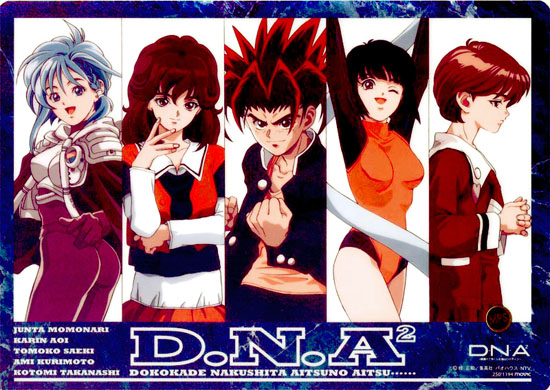
The whole time, Carl is telling me “Don’t go into anime! It’ll ruin your life!” Bless him. Around this time, I did a very shaky fandub of Ranma ½, which wasn’t even a full episode, just some experimentation. I did an episode of DNA², weirdly, and it kind of came together, and then we did the first two episodes of Evangelion, and that was when I thought “okay, I’ve finally got this figured out.” And I can watch it now and still be like “oh god, I’ve gotten so much better,” but…
When you were doing fandubs, what were you basing the ines off of?
Jaffe: I had a translator, and then I did my own script adaptation. For Eva we had the laserdiscs. I’d actually gone to ADV and told them I was going to do the fandub, and I don’t think they thought I was serious. I mean, I wouldn’t have thought I was serious. So they just said “yeah, yeah, do whatever you want.” They didn’t explicitly give me permission per se, but they kind of told me “you follow that dream, kid!”
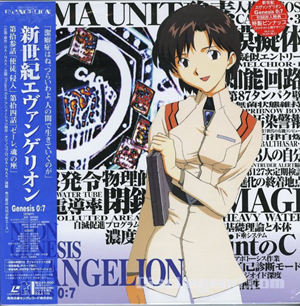
It’s understandable, every time I’m at a con I get 60 people telling me they want to become voice actors, and I ask them for a demo tape. In twelve years, I’ve gotten a demo twice. Honestly all you need is an mp3, just say you’ll send it over facebook or whatever these days. But I mean, it’s a rough racket. Don’t pretend it isn’t, LA feeds on dreams, and you go there and we slowly siphon them out with a straw.
But anyway, I sat down and made this — for the time — very good dub. I had all sorts of interesting people involved, too. We didn’t have a separated music and effects track, so I had a composer friend help out, and we built our own music and effects tracks just for this dub. It had brand new music, brand new sound effects, and I put it together by hand using an Avid workstation over a period of months. We had voice actors from MTV’s The Maxx, actors I worked with, we had Roddy McDowall, of all people. I pulled in every favor I had.
I showed it to ADV and it went really well. They, in their own sweet way, said “that was really good. Never do that again.” So I kind of turned it into a demo and shopped it around for a while, and eventually it reached New Generation Pictures who were kind of like “we’re about to start dubbing and don’t really know what we’re doing. You’ve obviously done this before and it came out pretty good, come and dub with us.” Which was very gracious of them considering I was maybe pushing 18.
How did that initial encounter with New Generation Pictures end up coming about?
Jaffe: I was working at a Japanese import/export toy store in Beverly Hills called The Joy Store. That was six blocks down from New Generation’s offices, and Jonathan Klein, one of the founders of the company, used to shop at the store. That’s where he saw my demos. We had these monitors up and I would play whatever anime I was into at the time. A little Tenchi Muyo, a little Ranma ½, a little Urusei Yatsura. It was a fun, cool store. It was a very social place, the only place like it in town. Long, long gone.
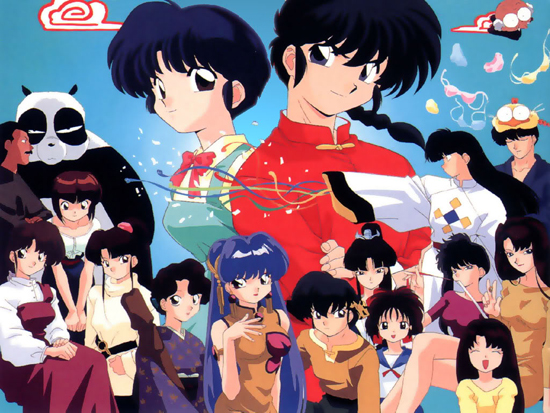
A lot of the classic anime stores in LA are long gone. Pony Toy Go Round, that was the winner. I bought a complete set of Saint Seiya action figures through there, every single one Bandai produced through the ‘80s and ‘90s.
Actually, here’s a story I don’t think I’ve ever told before: I was in a random production meeting with Geneon at one point in the 2000s, and they’re like “so we might get the DVD rights to Saint Seiya…” I literally bolted straight up, ran to my car, ran back up, dropped $300 worth of classic Saint Seiya toys on the table, said “these are my extras. You can have them. I want you to keep that in mind. I’ve already through about how to dub this, I’m done, I’m ready, let’s do it.”
And yeah, obviously, that didn’t happen. That would’ve been big. I would’ve lost my mind, having the opportunity to do that.
Didn’t somebody else end up releasing some version of Saint Seiya in the US?
Jaffe: ADV got it. And I was like “aw, man.” That would’ve been amazing. I would have made sweet love to that show.
So is it safe to say that’s one of your dream projects?
Jaffe: Oh, I’ve got like six. It’s good to have a lot of dream projects. Saint Seiya’s way up there, Rose of Versailles is way up there. I love classic anime.
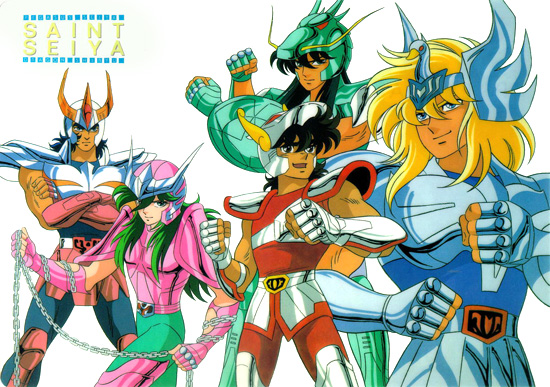
Well, Rose of Versailles recently got a US release courtesy of Right Stuf, but it’s Japanese-audio only. Is the market just not there for a dub of that kind of show?
Jaffe: I would love to talk to Right Stuf about it. They tend to not spend a lot of money on these things, and I would need a little bit of money to do this right. I get that there might not be a market for it, but I think it would be amazing in English. I’d cut them a deal. Just putting it out there. I’d totally cut them a deal. It’s an amazing show and I would absolutely do it as a labor of love.
Sentai Filmworks has the rights to a bunch of amazing shows I love, and I’ve sent them emails, but I can’t get them to respond. I’ve been like “I will make you an offer you cannot refuse to dub these shows,” because I literally just want the pleasure of doing it. I need enough money to make a living, but we will work this out, because they’ve got some titles that just rock my world. And then I can’t get them to call me back. Look me up! I’m very serious, I know what I’m doing!
Let’s see, Legend of the Galactic Heroes is another show I’d love to do…
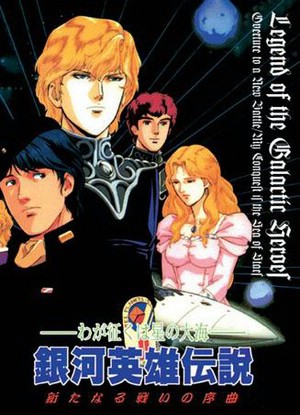 Oh, wow. When people bring up Legend of the Galactic Heroes it’s always in that context of, like, “the dub that couldn’t be done.” Just the amount of money, the talent necessary to make that work. You think it’s doable?
Oh, wow. When people bring up Legend of the Galactic Heroes it’s always in that context of, like, “the dub that couldn’t be done.” Just the amount of money, the talent necessary to make that work. You think it’s doable?
Jaffe: I’ve been planning it for years. I know exactly how to do it. It’s a dual-production team, you send all of the Alliance stuff to Texas, do all the Imperial stuff in LA. I’ve worked this out. This is what I do at night, this is how I fall asleep. They actually did a test dub of the show a while back, it wasn’t bad. There’s a whole series of weird rights issues with that show.
What else… the new Sailor Moon is very very big on my list. I’d love to work on that. There’s a big list. I tried for Escaflowne back when that was out. There’s a whole bunch of stuff that you can’t get no matter how hard you try… but I tried for Hellsing and I got it, so that was nice.
You’ve talked in the past about the theory, not so much the science but the gut instinct required to adapt a script into English. What are some of the things you’ve learned in the past few decades doing this, and what do you wish you knew when you were just starting out?
Jaffe: Script adaptation is absolutely an art-form, and as for things I wish I’d known… “Don’t go too dense” is a big one. There were some early episodes of Hellsing where I was trying to do six layers, and it just turned into a giant mess.
When you say “six layers,” what are you referring to, exactly?
Jaffe: Let’s say I have a line, and on that line — I wish I had a specific example but it’s been 11 years now, oh God — on this line I’d want to put some social context under there which I felt was necessary for the scene, and then I’d add a pun in there, and then I’d have two layers of character development, and–
At this point no one knows what the hell you’re doing, you’re confusing your actor, your script is a mess. Stop that. Stop. You have line, subtext, maybe a pun, don’t go any further than that, just stop there. Just stop. Stop trying to control the situation. Let it be a little softer and looser than you think it should be, and you’ll actually end up being more specific.
I didn’t realize at the time that you could actually overcontextualize something to death. I’m so glad I didn’t do the scripts for Romeo x Juliet earlier in my career, for example. I was old enough when I did that to know “okay, that’s good enough.” If you overcook it, you’re just going to ruin it, and you have to restrain yourself for something like that. There’s a real danger for a project like that to turn into such a wankfest. And thankfully it didn’t, but there were a few moments where it was like, “we’re working a little too hard on this, guys.”
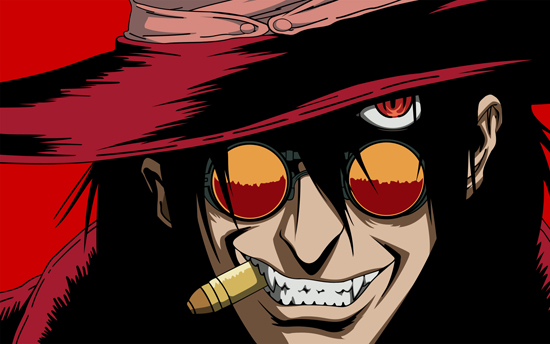
Do you ever watch fandubs yourself?
Jaffe: I say this with such love and respect, but… I watched a lot of fandubs, and was not often impressed. I was impressed a few times. Every now and again I would see something that blew my mind. Often I was not entirely sure what they were going for. I would often wonder… It looks like a lot of fun with your friends, and that’s great, and I think that’s really, really cool. I’m not sure what you’re doing, though. I would often think, “what is your thesis, here? And can you explain your thesis?” And often the answer was “no.”
Occasionally “yes,” though! And there were a few dubs I saw from fans that were really impressive. There were a couple people I tried to hunt down, because I wanted to work with them, but I could never find them. Mostly, though, it was obvious fandubs were done just for fun, which I get, I understand that. I do it for a living and it’s a lot of fun, but yeah.
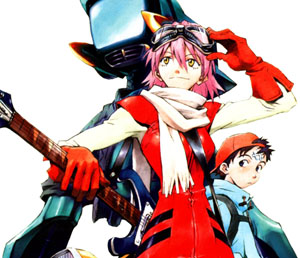 Well also in the sense of like… there’s always been that debate on the internet over whether honorifics have a place in an English-language subtitle track, even more so when talking about a script adaptation for a dub. What are your thoughts on that at this point?
Well also in the sense of like… there’s always been that debate on the internet over whether honorifics have a place in an English-language subtitle track, even more so when talking about a script adaptation for a dub. What are your thoughts on that at this point?
Jaffe: I’ve had a change of heart on honorifics in the past few years, because I had a friend who’s a voice actor kind of talk with me about it on a show that had a lot of honorifics in it. I think it’s a call you have to make on a show-by-show basis. There are shows where honoricis can survive, and there are shows that should not have them. I think it’s a slippery slope. At what point do we just have new actors reciting the Japanese lines? It’s about accessibility, and if you’re dubbing a show that’s not designed to be accessible, then I think honorifics are fine.
To be a jerk, it’s Marvel vs. DC. You’re either trying to make something for everybody, or you’re saying “we only want these select people to watch our show, and if you’re not in on the joke you can go watch something else.” I think that honorifics create a sense of exclusion, much like subtitles. Subtitles are very, very good at creating a sense of exclusion, which can be a benefit to a show, depending. Some shows should feel exclusive. Private, even. Like a secret club. For a long time that was what anime was: a secret club. And the big anime boom changed that. Now it’s just a cultural point like anything else.
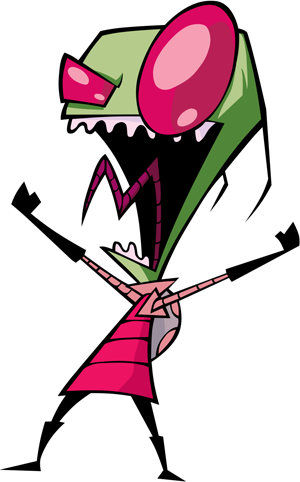 Well, on that note, where do you think anime’s going, in the grand scheme of things? Do you feel like the chance for anime to become a big mainstream thing passed with the boom years, or was it never there to begin with?
Well, on that note, where do you think anime’s going, in the grand scheme of things? Do you feel like the chance for anime to become a big mainstream thing passed with the boom years, or was it never there to begin with?
Jaffe: Anime is… it’s receding, but it’s not secret. It’s not a secret club. By itself it was never going to be a cultural phenomenon, just by its very nature. But its effects on the culture are permanent, and it’s changed the way pop-culture is made throughout the world on every conceivable level, so in that respect it’s been just enormous. Things like Invader Zim wouldn’t look like Invader Zim if things like Evangelion and FLCL didn’t exist. I mean there’s no aspect of our culture that isn’t influenced by it at this point. It’s not like an island that you throw into a river, it’s changed the makeup of the water itself. It’s now in the elixir of how we make pop art.
Take a movie, like — well, I was going to say Pacific Rim, but let’s go back even further and look at something like Dark City, which was a popular, critically-acclaimed movie that had a very thick, very obvious anime influence. I think anime touched the culture in the same way Kenneth Anger or Roman Polanski did, where it’s just a thing that alters the way we interpret and tell stories. It’s created a whole series of new storytelling language points that even people who aren’t anime fans understand. And I think that’s really what it did.
I know Carl Macek was really big on the idea of the “McDonald’s toy,” and we’ve had anime at this point that have been popular enough to get toys at Mcdonald’s, and it wasn’t as big a deal as we thought it would be. The big deal is when we had the great writers and artists and filmmakers of the 20th and 21st centuries grow up on anime, as opposed to just Spielberg. We had the late 20th century with the children of Speilberg, and now we’re getting into the children of Miyazaki and the children of Hideaki Anno and you can see it in everything that comes out. Every piece of pop culture that comes out now has that taste.
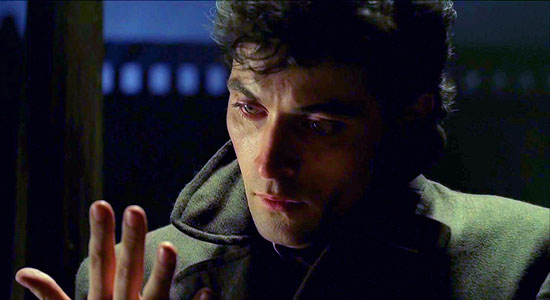
So where to from here?
Jaffe: Death and obscurity. (laughs)
Well okay, let’s limit it to the industry. Next five years, where do you see things going?
Jaffe: Anime as a distinct artform is going to slowly wind down to very, very low levels. Recently there’s been a lot of interesting stuff hitting for the first time in a while. There’s been a lot of content that’s been energetic and interesting and experiemental… It’s been a bad time for experimental, since there’s no money, and the money’s not coming back. And there’s no talent, and the talent’s not coming back. They’re having a really tough time finding the next generation of great animators. And so we’re kind of just waiting for the ones we have to die. And then we’re done. Which is embarrassing, but…
Well, come on, there are still enough guys out there doing interesting stuff to–
Jaffe: Well, there’s guys still out there working, but they’ll be dead soon. I mean, I hate to be so… There’s no more hot new talented people to–

Wait, I’m wearing the “I backed Kick-Heart shirt” right now, and you’re telling me there’s no new talented people making stuff out there?
Jaffe: They’re gonna be rare, because the sad truth of it is… I read a list not too long ago of the 10 worst jobs in Japan, and animator was way, way up there. It is a thankless, loveless, hateful job that kills you quickly. You die young, you die poor, and you die lonely. I hate to sound awful about it, but that’s kind of the way it is. And that same degree that one gets to become an animator gets you a job in the video game industry, which, while not doing great in Japan right now, is half the work at 50 times the pay.
And so all the great character designers, all the great animators are going into video games because they want to have a family and a life and not die in their forties. They’re going into the next big art form, which is going to be video games. I think we’re going to be getting a lot of interesting video games out of Japan, but I think animation is kind of… we’re still seeing a few interesting things coming out, but I think it’s going to be one of those things where less and less is produced, and what is produced is often going to be designed to sell toys or body pillows. There’s always going to be something, but we’re not going to see the ‘80s and ‘90s again any time soon.




